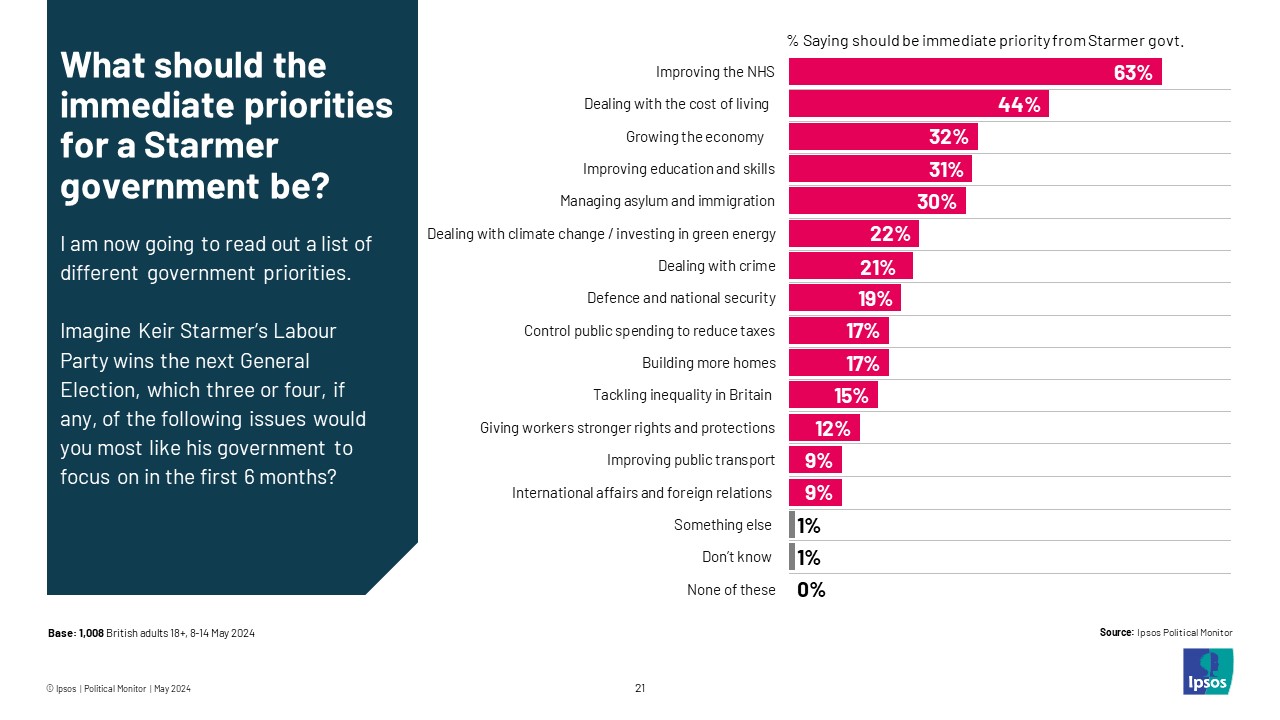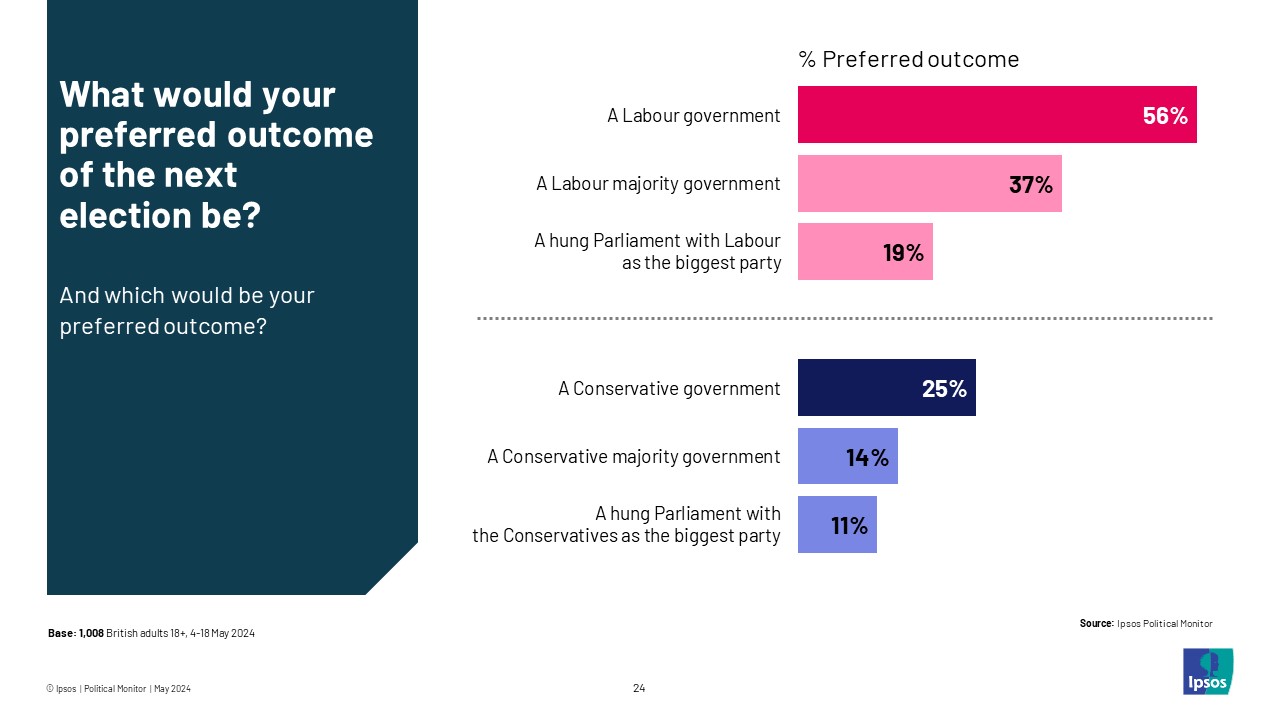Britons want Starmer to prioritise the NHS as they predict a Labour victory
- Three in four expect Labour to be the biggest party after election (45% think with a majority)
- Three in five want a Labour government to prioritise the NHS in its first six months
- Public divided on whether Labour ready for government, but still prefer that to a Conservative victory
The latest Ipsos Political Monitor, conducted 8-14 May, shows that if Keir Starmer’s Labour party wins the next election, three in five (63%) want his government to focus on improving the NHS in the first six months.
Healthcare stands out as the public’s clear short-term priority, followed by dealing with the cost of living, mentioned by forty-four percent. Around one in three select growing the economy (32%), improving education and skills (31%) and managing asylum and immigration (30%).

When then asked what other areas should be longer-term priorities for a potential Labour government (excluding those picked as immediate priorities), the top remaining issues for further into any term in government were improving education and skills (29%), dealing with crime (29%) and dealing with the cost of living (27%).
Healthcare remains the top issue that voters say will be very important in helping determine their vote, selected by one in three (32%), down three points since April. This is followed by managing the economy (26%, +3ppts) and asylum and immigration (23%, +3ppts).
Who do the public think will win the election?
Three in four (74%) predict that Labour will be the biggest party after the next election, which is up thirteen points since last September and much higher than public expectations of a Labour victory ahead of the 2010, 2015 and 2019 elections. Forty-five percent think there will be a Labour majority government, compared to three in ten (29%) saying a hung parliament with them as the largest party.
Only one in seven (14%) are plumping for the Conservative’s chances of winning (-13 points since September). Around one in twenty predict a Conservative majority (6%), with a similar proportion saying a hung parliament with them as the largest party (8%).
What do the public want to happen at the next election?
The majority (56%) say they would prefer a Labour government after the election, with nearly two in five (37%) wanting this as a majority government and one in five (19%) in a hung parliament. On balance, slightly more think a Labour majority would be good for the country than bad (42% vs. 32% respectively), but they are more divided on Labour leading a hung parliament (34% vs. 37%).
However, only one in four (25%) say their preference would be a Conservative victory, either as a majority government (14%) or in a hung parliament as the largest party (11%). Three in five (59%) say both outcomes – a Conservative majority or Conservative led hung-parliament – would be bad for the country.

Elsewhere in the poll:
- The public remain divided on whether Labour is ready to form the next government, with two in five (39%) saying they are, but a similar proportion disagreeing (37%). These figures are relatively unchanged since January; they are below Starmer’s high point towards the end of 2022 but much less negative than views of Labour under Jermy Corbyn and Ed Miliband.
- One in three (33%) think Keir Starmer is ready to become Prime Minister, against two in five saying he isn’t (40%) – his worst scores for about a year, but again still better than his predecessors Jeremy Corbyn and Ed Miliband.
Commenting on the findings, Gideon Skinner, Head of Politics at Ipsos in the UK, said:
Keir Starmer launched his six first steps last week of what a Labour government would do if elected, and while they do broadly match public priorities there is no doubt what is at the top of voters’ list – improving the NHS. Reflecting high levels of public dissatisfaction with the way the Conservatives are running the health service, this is an area of strength for Labour – but also means that expectations are high. If Labour is elected, Starmer will need to balance demands to show some quick improvements in the NHS while also building up public confidence in his plan to deal with the long-term challenges it is facing. More broadly, the public shares rising expectations that Labour will be the likely winners at the next election, and although they aren’t united in their enthusiasm for them, they are much more positive about that than the prospect of another Conservative term in office.
Technical note:
Ipsos interviewed a representative sample of 1,008 adults aged 18+ across Great Britain. Interviews were conducted by telephone between the 8th – 14th May 2024. Data are weighted to match the profile of the population. All polls are subject to a wide range of potential sources of error.






